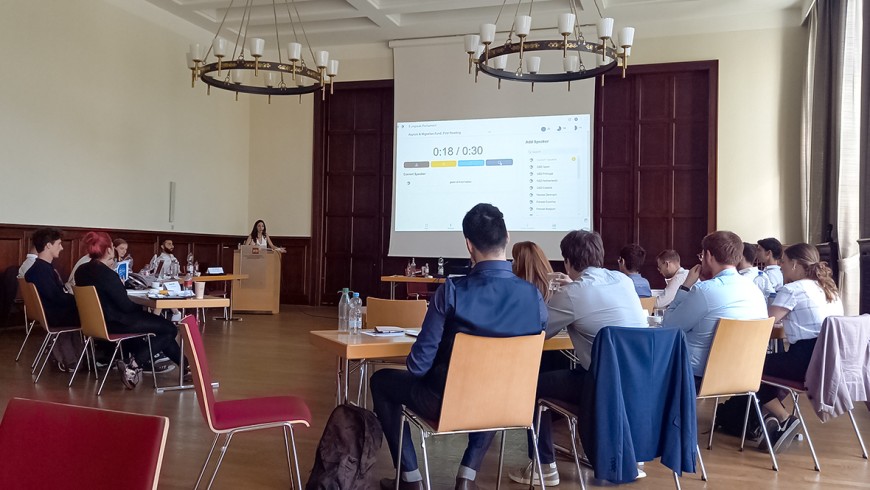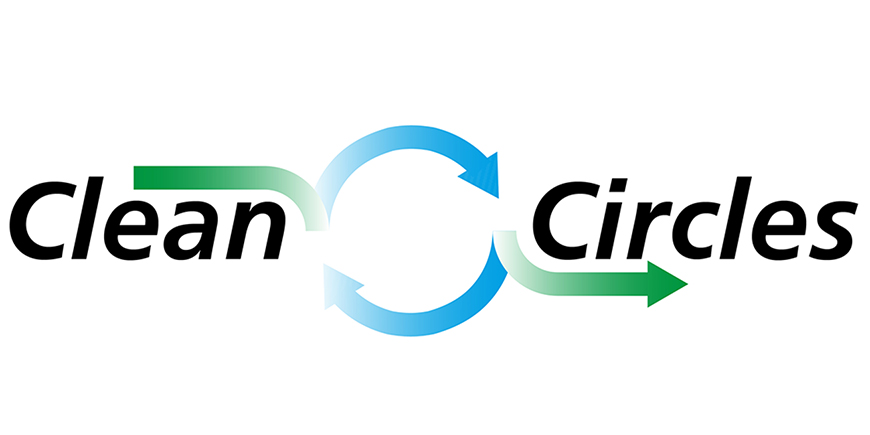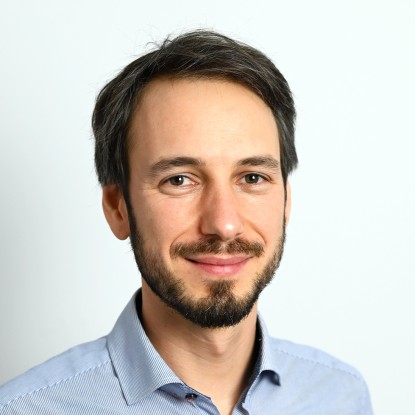What it's like to speak in parliament on climate and energy issues
Students simulate EU decision-making in Model European Mainz (MEUM) 2022
2022/06/27
From 22–25 June 2022, the Clean Circles teams of Prof. Arne Niemann and Prof. Michèle Knodt held a simulation at the University of Mainz on the legislative procedure of the European Climate Law in European Parliament and Council.

Students from the Johannes Gutenberg University Mainz (JGU), the Technical University of Darmstadt and various partner universities of the European university alliance FORTHEM simulated the legislative process of the European Union from 22 to 25 June 2022. A total of 50 young people from nine countries took on roles as members of the European Parliament to bring the European idea to life in a realistic role play. In this context, the ordinary legislative procedure of the EU is to be conveyed to the students in a more interactive, intensive and long-term way than is possible in ordinary lectures.
The participants debated real draft laws of the EU Commission. By working in parliament, the participants not only improve their formal knowledge of the EU, but also personally experience how complex negotiations are at the supranational level. They learn about different points of view, how to deal with them and thus also improve their language skills, as all discussions and draft texts are in English.
In 2022, the participants simulated the European Commission's draft to achieve climate neutrality and thus real processes and complex decision-making within the European Union. In controversial debates, the students worked out additions to the legal text in detailed work in a face-to-face format and voted on the treaty text as a whole.
The simulation does not only pursue purely academic goals. Above all, it wants to bring young Europeans together and thus promote European integration on a personal level as well. Prof. Dr. Arne Niemann emphasised the relevance of the European idea but also the many challenges facing the EU, for example in the fight against climate change. In addition, the Model European Union Mainz (MEUM) is characterised by a preoccupation with real challenges, political decision-making processes and social debates and thus contributes to the political science study of these processes against a real background. It sharpens the participants' understanding of the complexity of European energy policy.

